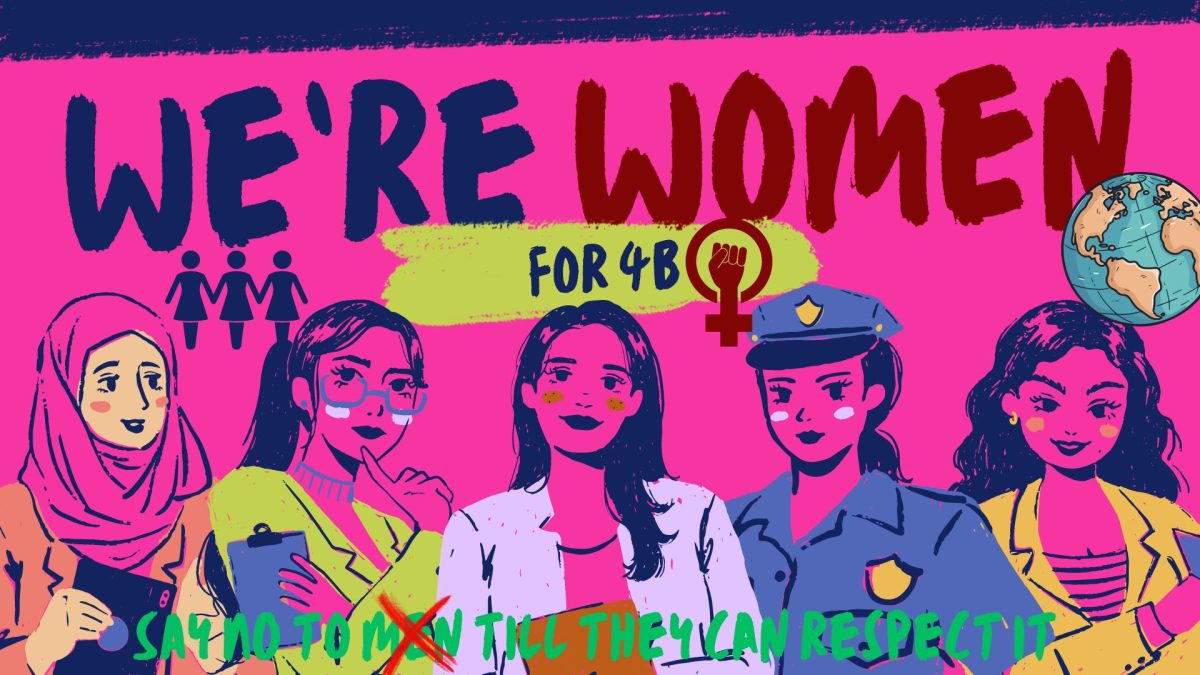The 4B Movement: Why Some U.S. Women Are Boycotting Men After Trump’s Win
In the wake of Donald Trump’s re-election, many U.S. women dissatisfied with the outcome are turning to a feminist movement that originated in South Korea, known as the 4B movement. This movement encourages women to reject heterosexual marriage, sex, childbirth, and dating as a form of protest against systemic misogyny.
Origins of the 4B Movement
The 4B movement began around 2017 in South Korea, gaining momentum in 2018 amid protests against a surge in spy cam incidents and gender-based violence. It has since evolved into a significant feminist phenomenon, paralleling movements like #MeToo. Recently, interest in the 4B movement has surged in the U.S., with Google searches for “4B” spiking by 450% shortly after the election results, particularly in regions such as Washington D.C., Colorado, Vermont, and Minnesota.
What Does 4B Stand For?
The term “4B” stands for four Korean phrases that begin with “bi,” meaning “no” in English:
- Bihon: No heterosexual marriage
- Bichulsan: No childbirth
- Biyeonae: No dating
- Bisekseu: No heterosexual sexual relationships
Participants in the 4B movement aim to boycott traditional societal structures that they believe perpetuate gender inequality. While some may still desire marriage and children, they feel that the risks associated with conforming to traditional gender roles outweigh the benefits.
Broader Implications
Initially, the movement arose in response to issues such as revenge porn and the misuse of spy cameras targeting women. However, it has expanded to encompass broader concerns, including access to abortion, the gender pay gap, and intimate partner violence. Advocates argue that if violence and inequality persist, they will contribute to declining birth rates as a form of protest.
Haein Shim, a South Korean activist, stated that the movement promotes a lifestyle focused on building safe communities and fostering independence from societal expectations. However, participants often face backlash, including harassment and threats, highlighting the risks associated with their activism.
The Movement’s Growth in the U.S.
As interest in the 4B movement grows in North America, its impact is difficult to quantify. In South Korea, the movement has been linked to a significant increase in women pursuing higher education—nearly three-fourths of Korean women now do so, compared to less than two-thirds of men. This shift has allowed women to envision lives independent of male partners.
The movement also coincides with South Korea’s declining birth rate, which some attribute to the 4B ideology. President Yoon Suk Yeol has criticized feminism for contributing to this decline, insisting that structural gender discrimination does not exist.
U.S. Context and Concerns
The re-election of Trump has intensified fears regarding women’s rights in the U.S., particularly following the overturning of Roe v. Wade. Many women perceive his administration as a threat to reproductive rights and other gender-related issues. Trump has framed the elimination of Roe v. Wade as a significant achievement, which has contributed to the urgency felt by many women regarding their rights.
Experts warn that the rise of the 4B movement in the U.S. could create further division between genders, potentially exacerbating misogynistic attitudes among men who feel threatened by changing gender roles. Sarah Liu, a lecturer in Gender and Politics, cautioned that this divide might reinforce negative stereotypes and provoke backlash from men.
Cultural Differences in the Movement
Political science professor Katharine Moon noted that while the 4B movement may gain traction in the U.S., it is likely to manifest differently than in South Korea due to cultural differences. In South Korea, marriage is often viewed as essential for adulthood, whereas in the U.S., the movement may serve more as a temporary means to highlight the precarious situation of women in the face of political changes.
Conclusion
The 4B movement represents a growing response among U.S. women to perceived threats to their rights and autonomy, inspired by a larger global movement. As discussions about gender equality continue to evolve, the implications of such movements will likely influence societal attitudes and policies moving forward.
Thank you for taking the time to read this article! Your thoughts and feedback are incredibly valuable to me. What do you think about the topics discussed? Please share your insights in the comments section below, as your input helps me create even better content.
I’m also eager to hear your stories! If you have a special experience, a unique story, or interesting anecdotes from your life or surroundings, please send them to me at whatsissue@gmail.com. Your stories could inspire others and add depth to our discussions.
If you enjoyed this post and want to stay updated with more informative and engaging articles, don’t forget to hit the subscribe button! I’m committed to bringing you the latest insights and trends, so stay tuned for upcoming posts.
Wishing you a wonderful day ahead, and I look forward to connecting with you in the comments and reading your stories!
